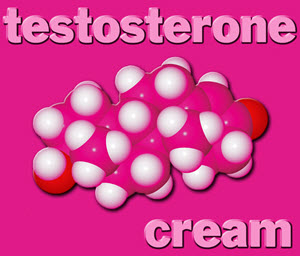Introduction to Hypopituitarism
Hypopituitarism is a rare medical condition characterized by the diminished secretion of one or more of the eight hormones produced by the pituitary gland. This small, pea-sized gland located at the base of the brain plays a crucial role in regulating various bodily functions, including growth, metabolism, and reproductive processes. While hypopituitarism primarily affects both genders, its impact on the female reproductive system, particularly vaginal health, warrants a closer examination.
The Role of Pituitary Hormones in Female Reproductive Health
The pituitary gland secretes hormones such as follicle-stimulating hormone (FSH) and luteinizing hormone (LH), which are essential for the regulation of the menstrual cycle and ovulation. These hormones work in tandem with estrogen and progesterone, produced by the ovaries, to maintain the delicate balance of the female reproductive system. In cases of hypopituitarism, the reduced secretion of FSH and LH can lead to disruptions in the menstrual cycle, ovulation, and overall vaginal health.
Effects of Hypopituitarism on Vaginal Health
Hypopituitarism can have a profound impact on vaginal health, primarily due to the decreased levels of estrogen. Estrogen plays a vital role in maintaining the thickness and elasticity of the vaginal walls, as well as the natural lubrication of the vagina. When estrogen levels drop as a result of hypopituitarism, women may experience vaginal dryness, itching, and discomfort during sexual intercourse. These symptoms can significantly affect a woman's quality of life and intimate relationships.
Moreover, the reduced estrogen levels associated with hypopituitarism can lead to a condition known as atrophic vaginitis. This condition is characterized by the thinning and inflammation of the vaginal walls, which can increase the risk of vaginal infections and urinary tract infections. Women with hypopituitarism may also experience a decrease in libido and sexual satisfaction due to the hormonal imbalances and associated vaginal health issues.
Impact on Fertility and Reproductive Function
Hypopituitarism can have a significant impact on a woman's fertility and reproductive function. The reduced secretion of FSH and LH can disrupt the normal menstrual cycle and prevent ovulation, making it difficult for women to conceive. In some cases, women with hypopituitarism may experience amenorrhea, or the absence of menstrual periods, further complicating their ability to achieve pregnancy.
For women who do become pregnant, hypopituitarism can pose additional challenges. The hormonal imbalances associated with the condition may increase the risk of miscarriage, preterm labor, and other pregnancy complications. It is crucial for women with hypopituitarism to work closely with their healthcare providers to manage their condition and optimize their chances of a healthy pregnancy.
Diagnosis and Treatment of Hypopituitarism
Diagnosing hypopituitarism typically involves a combination of blood tests to measure hormone levels, imaging studies such as MRI scans to assess the pituitary gland, and stimulation tests to evaluate the gland's function. Once diagnosed, treatment for hypopituitarism often involves hormone replacement therapy to restore the deficient hormones to normal levels.
For women with hypopituitarism, hormone replacement therapy may include estrogen and progesterone to help maintain vaginal health and support the menstrual cycle. In some cases, fertility treatments such as gonadotropin therapy may be necessary to stimulate ovulation and improve the chances of conception.
Conclusion: The Importance of Early Detection and Management
Hypopituitarism can have a significant impact on vaginal health and the female reproductive system. Women experiencing symptoms such as irregular menstrual cycles, vaginal dryness, or difficulty conceiving should seek medical attention to determine if hypopituitarism may be the underlying cause. Early detection and proper management of the condition through hormone replacement therapy and other treatments can help mitigate its effects on vaginal health and fertility. By working closely with healthcare providers, women with hypopituitarism can take proactive steps to maintain their reproductive health and overall well-being.
Contact Us Today For A Free Consultation

- What is Hypopituitarism [Last Updated On: March 16th, 2025] [Originally Added On: February 18th, 2021]
- Is There Such a Thing as Too Much HGH? [Last Updated On: March 16th, 2025] [Originally Added On: August 22nd, 2023]
- Unveiling the Cardiovascular Implications of Hypopituitarism in American Males [Last Updated On: March 1st, 2025] [Originally Added On: March 1st, 2025]
- Hypopituitarism in American Men: Impacts and Management Strategies [Last Updated On: March 10th, 2025] [Originally Added On: March 10th, 2025]
- Hypopituitarism and Metabolic Syndrome: Unraveling the Connection in American Males [Last Updated On: March 16th, 2025] [Originally Added On: March 16th, 2025]
- Unveiling the Cardiovascular Risks: The Link Between Hypopituitarism and Heart Disease in American Males [Last Updated On: March 16th, 2025] [Originally Added On: March 16th, 2025]
- Unraveling the Connection: Hypopituitarism and Uterine Fibroids in American Males [Last Updated On: March 16th, 2025] [Originally Added On: March 16th, 2025]
- Exploring Hypopituitarism's Impact on Vaginal Health and the Female Reproductive System [Last Updated On: March 16th, 2025] [Originally Added On: March 16th, 2025]
- Unraveling the Hormonal Link: Hypopituitarism and Breast Cancer in American Males [Last Updated On: March 16th, 2025] [Originally Added On: March 16th, 2025]
- Hypopituitarism and Autoimmune Disorders: Critical Insights for American Males [Last Updated On: March 16th, 2025] [Originally Added On: March 16th, 2025]
- Hypopituitarism and Obesity in American Males: Hormonal Impacts and Management Strategies [Last Updated On: March 17th, 2025] [Originally Added On: March 17th, 2025]
- Hypopituitarism in American Males: Hormonal Imbalances and Sleep Disorder Connections [Last Updated On: March 18th, 2025] [Originally Added On: March 18th, 2025]
- Surgical Interventions for Hypopituitarism and Pituitary Tumors in American Males [Last Updated On: March 19th, 2025] [Originally Added On: March 19th, 2025]
- Hypopituitarism's Impact on Mental Health in American Males: Depression, Anxiety, and Treatment [Last Updated On: March 19th, 2025] [Originally Added On: March 19th, 2025]
- Multidisciplinary Care Essential for Managing Hypopituitarism in American Males [Last Updated On: March 20th, 2025] [Originally Added On: March 20th, 2025]
- Hypopituitarism in American Males: Cancer Risks and Monitoring Strategies [Last Updated On: March 21st, 2025] [Originally Added On: March 21st, 2025]
- Hypopituitarism and Anemia in American Males: The Critical Role of EPO Deficiency [Last Updated On: March 21st, 2025] [Originally Added On: March 21st, 2025]
- Hypopituitarism and Male Hair Loss: Hormonal Mechanisms and Treatment Strategies [Last Updated On: March 21st, 2025] [Originally Added On: March 21st, 2025]
- Hypopituitarism's Impact on Kidney Function in American Males: Monitoring and Management [Last Updated On: March 21st, 2025] [Originally Added On: March 21st, 2025]
- Hypopituitarism's Impact on Immune Function in American Men: Diagnosis, Treatment, and Management [Last Updated On: March 21st, 2025] [Originally Added On: March 21st, 2025]
- Hypopituitarism in American Males: Cognitive Impacts and Management Strategies [Last Updated On: March 22nd, 2025] [Originally Added On: March 22nd, 2025]
- Hypopituitarism in American Males: Impact on Eye Health and Visual Impairments [Last Updated On: March 22nd, 2025] [Originally Added On: March 22nd, 2025]
- Hypopituitarism in Aging American Males: Impact, Diagnosis, and Management Strategies [Last Updated On: March 22nd, 2025] [Originally Added On: March 22nd, 2025]
- Hypopituitarism's Impact on Liver Health in American Males: Hormonal Deficiencies and Management [Last Updated On: March 22nd, 2025] [Originally Added On: March 22nd, 2025]
- Hypopituitarism's Impact on Joint Health in American Males: Diagnosis and Management [Last Updated On: March 22nd, 2025] [Originally Added On: March 22nd, 2025]
- Hypopituitarism's Impact on GI Health in American Males: Digestion and Nutrient Absorption [Last Updated On: March 23rd, 2025] [Originally Added On: March 23rd, 2025]
- Hypopituitarism's Impact on Skin Health in American Males: Symptoms and Management [Last Updated On: March 23rd, 2025] [Originally Added On: March 23rd, 2025]
- Hypopituitarism and Seizure Disorders in American Males: Clinical Insights and Management [Last Updated On: March 23rd, 2025] [Originally Added On: March 23rd, 2025]
- Hypopituitarism and Migraines: Hormonal Links and Management Strategies for American Men [Last Updated On: March 23rd, 2025] [Originally Added On: March 23rd, 2025]
- Hypopituitarism and Hypertension: Impact on Blood Pressure in American Males [Last Updated On: March 23rd, 2025] [Originally Added On: March 23rd, 2025]
- Hypopituitarism's Link to Gout and Uric Acid in American Males: A Comprehensive Analysis [Last Updated On: March 23rd, 2025] [Originally Added On: March 23rd, 2025]
- Hypopituitarism's Impact on Muscle Strength in American Males: Management and Insights [Last Updated On: March 24th, 2025] [Originally Added On: March 24th, 2025]
- Autoimmune Link: Hypopituitarism and Rheumatoid Arthritis in American Males [Last Updated On: March 24th, 2025] [Originally Added On: March 24th, 2025]
- Exploring the Link Between Hypopituitarism and MS in American Males [Last Updated On: March 24th, 2025] [Originally Added On: March 24th, 2025]
- Autoimmune Link Between Hypopituitarism and Celiac Disease in American Males [Last Updated On: March 24th, 2025] [Originally Added On: March 24th, 2025]
- Hypopituitarism and Diabetes: Impact on Glucose Metabolism in American Males [Last Updated On: March 25th, 2025] [Originally Added On: March 25th, 2025]
- Hypopituitarism's Impact on Kidney Health in American Males: Monitoring and Management [Last Updated On: March 25th, 2025] [Originally Added On: March 25th, 2025]
- Hypopituitarism and Hearing Loss: Exploring Links and Implications for American Males [Last Updated On: March 25th, 2025] [Originally Added On: March 25th, 2025]
- Hypopituitarism in American Males: Cardiovascular Risks and Management Strategies [Last Updated On: March 25th, 2025] [Originally Added On: March 25th, 2025]
- Hypopituitarism's Impact on Asthma in American Males: Hormonal Insights and Management [Last Updated On: March 25th, 2025] [Originally Added On: March 25th, 2025]
- Hypopituitarism and Allergies: Hormonal Impacts on Immune Response in American Men [Last Updated On: March 26th, 2025] [Originally Added On: March 26th, 2025]
- Hypopituitarism's Role in Accelerating Parkinson's Disease in American Males [Last Updated On: March 26th, 2025] [Originally Added On: March 26th, 2025]
- Hypopituitarism and Liver Cirrhosis: Impacts and Management in American Males [Last Updated On: March 26th, 2025] [Originally Added On: March 26th, 2025]
- Hypopituitarism and CFS Overlap in American Males: Symptoms, Mechanisms, and Clinical Insights [Last Updated On: March 26th, 2025] [Originally Added On: March 26th, 2025]
- Hypopituitarism and Fibromyalgia: Overlapping Symptoms and Impact on American Males [Last Updated On: March 26th, 2025] [Originally Added On: March 26th, 2025]
- Hypopituitarism, Hormonal Imbalances, and Alzheimer's Risk in American Males [Last Updated On: March 26th, 2025] [Originally Added On: March 26th, 2025]
- Hypopituitarism and Sjögren's Syndrome: Effects on Exocrine Glands in American Males [Last Updated On: March 26th, 2025] [Originally Added On: March 26th, 2025]
- Hypopituitarism and Dyslipidemia: Impacts on American Males' Health and Management Strategies [Last Updated On: March 26th, 2025] [Originally Added On: March 26th, 2025]
- Hypopituitarism's Impact on Prostate Cancer in American Males: Diagnosis and Management [Last Updated On: March 26th, 2025] [Originally Added On: March 26th, 2025]
- Exploring the Link Between Hypopituitarism and Lupus in American Males [Last Updated On: March 27th, 2025] [Originally Added On: March 27th, 2025]
- Hypopituitarism and Pituitary Cancer: Early Detection and Management for American Males [Last Updated On: March 27th, 2025] [Originally Added On: March 27th, 2025]
- Hypopituitarism in American Males: Monitoring Hormones to Reduce Stroke Risk [Last Updated On: March 27th, 2025] [Originally Added On: March 27th, 2025]
- Hypopituitarism and IBD: Gastrointestinal Links and Impacts on American Males [Last Updated On: March 27th, 2025] [Originally Added On: March 27th, 2025]
- Hypopituitarism and Adrenal Cancer: Endocrine Links in American Males [Last Updated On: March 27th, 2025] [Originally Added On: March 27th, 2025]
- Hypopituitarism and Osteoarthritis: Impact on Joint Health in American Males [Last Updated On: March 28th, 2025] [Originally Added On: March 28th, 2025]
- Hypopituitarism and Gallbladder Disease: Exploring Links in American Males [Last Updated On: March 29th, 2025] [Originally Added On: March 29th, 2025]
- Hypopituitarism's Impact on Pancreatitis: Risks and Management for American Males [Last Updated On: March 29th, 2025] [Originally Added On: March 29th, 2025]
- Hypopituitarism and Breast Cancer Link in American Males: Hormonal Insights and Clinical Implications [Last Updated On: March 30th, 2025] [Originally Added On: March 30th, 2025]
- Hormonal Imbalances in Hypopituitarism and Thyroid Cancer: Impacts on American Males [Last Updated On: March 30th, 2025] [Originally Added On: March 30th, 2025]
- Hypopituitarism and Testicular Cancer: Impacts and Fertility Preservation Strategies [Last Updated On: March 31st, 2025] [Originally Added On: March 31st, 2025]
- Hypopituitarism and Ovarian Cancer: Exploring Hormonal Links in American Males [Last Updated On: March 31st, 2025] [Originally Added On: March 31st, 2025]
- Hypopituitarism in American Males: Hormonal Imbalances and Benign Tumor Risks [Last Updated On: April 4th, 2025] [Originally Added On: April 4th, 2025]
- Hypopituitarism and PCOS: Symptoms, Diagnosis, and Management Strategies [Last Updated On: April 4th, 2025] [Originally Added On: April 4th, 2025]
- Hormonal Links Between Hypopituitarism and Endometriosis in American Males Explored [Last Updated On: April 5th, 2025] [Originally Added On: April 5th, 2025]
- Hypopituitarism and Erectile Dysfunction: Hormonal Links and Holistic Management in American Males [Last Updated On: April 6th, 2025] [Originally Added On: April 6th, 2025]
- Hypopituitarism: Effects on Male Reproductive and Penile Health [Last Updated On: April 8th, 2025] [Originally Added On: April 8th, 2025]
- Hypopituitarism, Hormonal Imbalance, and Cervical Cancer Risk in Men [Last Updated On: April 8th, 2025] [Originally Added On: April 8th, 2025]
- Hypopituitarism and Premature Ejaculation: Exploring Hormonal Links in American Males [Last Updated On: April 10th, 2025] [Originally Added On: April 10th, 2025]
- Hypopituitarism's Impact on Miscarriage Risk and Male Fertility in America [Last Updated On: April 10th, 2025] [Originally Added On: April 10th, 2025]
- Hypopituitarism and Preeclampsia in Pregnancy: Monitoring and Management Strategies [Last Updated On: April 10th, 2025] [Originally Added On: April 10th, 2025]
- Hypopituitarism and Ectopic Pregnancy: Impacts and Management in Women's Health [Last Updated On: April 11th, 2025] [Originally Added On: April 11th, 2025]
- Hypopituitarism and Male Infertility: Causes, Diagnosis, and Treatment Options [Last Updated On: April 11th, 2025] [Originally Added On: April 11th, 2025]
- Hypopituitarism and Gestational Diabetes: Metabolic Links in American Males [Last Updated On: April 11th, 2025] [Originally Added On: April 11th, 2025]
Word Count: 612





















